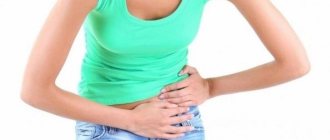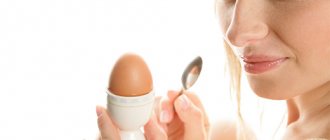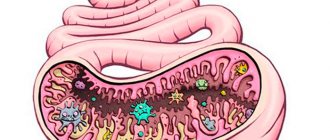After childbirth is finally over, the young mother can fully devote her life to the troublesome, but very pleasant care of the baby. But quite often a woman has some health problems at this time. Some unpleasant phenomena that occurred during pregnancy smoothly “flow” into the postpartum weeks, causing the woman to experience significant discomfort. We are talking about postpartum constipation , which occurs in about a third of young mothers.
Despite the fact that the pressure of the uterus on the intestines is no longer observed, the manifestation of intestinal dysfunction is provoked by other problems. In particular, in a woman who has just given birth to a baby, the abdominal muscles are very sluggish; the birth canal, injured during the birth of the baby, has not yet fully healed. In addition, after the birth of a child, many women suffer from another problem - postpartum hemorrhoids , which, in turn, aggravates the situation with constipation. In addition, very often constipation after childbirth worries those women who have had a caesarean section .
How to recognize constipation?
Many women experience constipation during pregnancy and already know its first symptoms. For those who experience constipation for the first time, you need to know the symptoms of defecation disorder in advance in order to begin treatment of the disease in time.
Signs of constipation are:
- no bowel movements for more than three days;
- pain during bowel movements worries the young mother every time;
- feces becomes smaller, it comes out in groups, looks like balls;
- there is pain in the lower and left side of the abdomen;
- cracks appear in the anus;
- general malaise appears and increases;
- the temperature may rise, and if feces are retained for up to several weeks, it may rise to 39 degrees;
- lack of stool causes irritability.
If such symptoms begin to appear, and new ones are added to the old ones, this is a reason to consult a doctor so that he can determine the cause of your constipation, if you cannot do this on your own.
A nursing mother needs to adjust her stool as quickly as possible.
After all, fecal stagnation contributes to intoxication of the body, which negatively affects not only the well-being of the sick woman, but also the health of her baby.
Specifics of bowel function in a woman after childbirth
After childbirth, the uterus gradually returns to its normal size, and the organs located in the abdominal cavity again have to get used to the new position. For the intestines, the recovery process (it has been in a compressed state for the entire last month) lasts about a week, after which, if everything is normal, it starts working again as before.
And before the organ begins to function as usual, women often encounter such a phenomenon as constipation.
A slight disturbance of peristalsis is normal. There is no need to perform any manipulations with it. Everything will soon go away on its own. But persistent difficult bowel movements must be treated. Is it possible to give an enema after childbirth? Yes, it happens that you cannot do without washing. But first you need to find out the cause of the problem and try to deal with it.
Causes of constipation after pregnancy
Intestinal upset in the form of lack of stool is caused by various factors, which are conventionally divided into two large groups:
Physiological reasons
Lack of bowel movements is associated with disruption of the intestines due to the influence of external or internal factors.
This may happen due to:
- changes in the hormonal background of a woman who has given birth;
- pressure of the still enlarged uterus on the intestines, which causes stagnation of feces due to its obstruction through too narrow a passage;
- lack of water in the body of a nursing mother and excessive hardening of stool;
- weakening of the abdominal and perineal muscles;
- disturbances in the tone of the intestinal walls;
- poor nutrition of the woman who gave birth, frequent snacking or simply an unbalanced diet due to the fact that the child is transferred to artificial feeding and the mother allows herself to eat unhealthy foods;
- congenital intestinal pathology, which makes itself felt after childbirth.
Psychological reasons
There are no physiological reasons for constipation, but the emotional background still interferes with defecation.
This happens for reasons:
- fears that postpartum sutures that were placed after childbirth or cesarean section will come apart;
- pain during bowel movements, which is associated with recent childbirth, which forces mothers to postpone this process until later in order to avoid discomfort;
- lack of time - mothers are always busy taking care of the child and there is simply no time to go to the toilet, and in the meantime the body stops giving signals to defecate due to a new habit;
- stress and emotional stress in connection with the birth itself or the fact that a caesarean section was performed;
- diseases of the intestinal tract, when the intestines have defects such as cracks, then going to the toilet is very painful and often does not end in success due to the fact that it is difficult for a woman to overcome her feelings.
Constipation can also occur as a result of a combination of several factors, therefore, in order to get rid of constipation, you must first establish its cause, otherwise symptomatic treatment may not only not help, but also harm the woman’s body and her child, since when feeding with mother’s milk, medications are also passed on .
It is best to consult a doctor so that he can prescribe treatment for you.
How to get rid of constipation after childbirth?
A common problem is poor nutrition for a woman who has just given birth. Immediately after childbirth, you do not need to pounce on any food, especially those that were not consumed during pregnancy. It is necessary to give preference to semi-liquid and liquid dishes, since a weakened body can easily cope with their processing. Beets, nuts, honey, fish, cereals, zucchini, pumpkin and dried fruits should be gradually introduced into the daily menu. Such products significantly improve intestinal motility. But it is better to exclude pears, dogwood, cocoa, tea and semolina, as these foods negatively affect the process of bowel movements.
It is equally important to drink enough fluid. It is advisable to drink about two liters of plain water, not including tea, compotes and other drinks. This will help improve the quality of milk and improve stool after childbirth. Also, to quickly restore the intestines, you need to move more. This may seem too complicated, since often after the birth of a baby, a woman’s genitals resemble a wound and constantly hurt, which makes walking difficult. But you need to come to your senses little by little and go for short walks.
You should also pay attention to massage. Experts recommend slightly kneading the abdominal muscles in a clockwise direction, as this greatly stimulates the functioning of the intestines. If the above methods do not produce results, then you need to visit the clinic. Most likely, the doctor will prescribe a number of medications to help improve bowel movements. For diarrhea, it is recommended to take activated carbon, Atoxil, Sorbex, Smecta and Enterosgel. If the problem is constipation, then it is advisable to give preference to drugs such as Duphalac, Normaze, Lactitol, Fitolax, Kafiol.
Types of constipation and their symptoms
There are three types of constipation, two of which represent separate groups, and the third is simply not included in any of them.
Such constipation has different characteristics and symptoms, which is very important for establishing a diagnosis and prescribing treatment for a young mother.
| Type of constipation | Characteristic | Symptoms |
| Spastic | With spastic constipation, the muscle tone of the intestines increases, which helps to separate the feces into lumps, even into balls similar to sheep feces. Such constipation is caused by psychological reasons and requires elimination of the irritating factor for treatment. | The feces are similar to sheep's, they come out poorly, and after defecation there is a feeling of incomplete emptying. Mom's stomach hurts on the lower left side, the pain begins in attacks. Appetite disappears and irritability and nervousness appear. |
| Atonic | With atonic constipation, the intestinal walls are relaxed and do not compress well. Weak peristalsis leads to slow movement of feces, which subsequently causes difficulties during bowel movements, including cracks and tears in the anus due to the hardness and large lump of feces. Constipation often occurs after a cesarean section, as well as non-compliance with the young mother’s diet. | The feces are large, very dense, and difficult to pass out. Often stool comes out with blood due to ruptures in the rectum. Black stool in an adult occurs when there is bleeding from the large intestine. The mother has a feeling of full intestines, nagging pain in the abdomen, nausea, sometimes vomiting, and lack of appetite. |
| Constipation caused by lengthening of the intestine | Feces take a very long time to move through the intestines, but most often no additional treatment measures are required other than diet to relieve symptoms. | The symptoms are the same as for spastic constipation. |
A doctor can identify the cause and determine the type of constipation; if you want to do this yourself, keep in mind that sometimes the problem may lie deeper than it seems. Yes, diet and exercise will not harm you, but you should not choose laxatives for nursing mothers on your own, much less drink them for a long time, this can harm both the baby and the mother. Therefore, it is better not to take such responsibility upon yourself, but to entrust your health to a specialist. He will tell you what to do and how to treat each type of constipation in a specific case.
Glycerin suppositories after childbirth: instructions for use and contraindications
Physiological and hormonal changes in the body during pregnancy affect all organ systems. These influences are not always positive. Gastrointestinal disorders such as constipation often occur.
This is a normal occurrence for the expectant mother, and often the problem disappears on its own over time.
But what to do if a woman has already brought a new life into the world, but her gastrointestinal disorder does not go away? Let's look at the causes of indigestion, symptoms, and how to choose a safe laxative for nursing mothers after childbirth.
Constipation and its causes
Constipation in a nursing mother can be identified by the following signs:
- bloating occurs (flatulence);
- poor passage of gases, resulting in pain in the intestinal area;
- defecation occurs less than 3 times a week;
- feces are hard, sectional, reminiscent of sheep feces (black balls);
Constipation can be caused by several main factors. After giving birth, a breastfeeding mother still produces the hormone progesterone, which relaxes smooth muscles. The intestinal muscles relax and it stops contracting intensively, as a result of which peristalsis is disrupted and a long delay in bowel emptying occurs.
Another important factor is hemorrhoids that occur during pregnancy or childbirth. It causes great discomfort to a woman during bowel movements. Due to pain, a woman delays bowel movements each time, which contributes to the development of constipation.
Hormonal imbalances, such as thyroid dysfunction, which sometimes occur in expectant and nursing mothers, also lead to constipation.
Taking medications - iron, calcium - can also cause stool retention.
Which vaginal suppositories to choose?
In order to correct bowel dysfunction, sometimes it is not enough to use only anti-constipation remedies. Since many women in labor experience this problem because they experience fear and discomfort during bowel movements due to tears and stitches in the perineum, it is necessary to speed up the healing process of wounds.
For ruptures after childbirth, doctors often prescribe Depantol suppositories. This drug has two active ingredients: chlorhexidine bigluconate and dexpanthenol. The first substance gives Depanthol pronounced antiseptic properties. It helps eliminate infections and prevents the formation of inflammation in areas of damage.
Dexpanthenol is intended to accelerate regeneration following childbirth with stitches. It enhances the ability of tissues and cells to regenerate, strengthens them and accelerates the process of intracellular metabolism in the vagina. When using Depantol, healing occurs much faster.
Depantol is safe for nursing mothers, since the active substances do not affect breast milk. Depantol is also prescribed for hypersensitivity of the vaginal mucosa after childbirth.
Vaginal sea buckthorn suppositories also have a healing effect. They are not so popular, but they can relieve inflammation, promote tissue repair and eliminate infection. Medicines based on sea buckthorn oil are allowed to be used during lactation, provided that the mother is not allergic to sea buckthorn.
Treatment of constipation in a nursing mother
General recommendations for relieving constipation for mothers are as follows:
- Lead an active lifestyle and do light physical exercise every day.
- Include more fresh vegetables and fruits in your diet, do not abuse fatty, spicy and sweet foods.
- Eliminate fixative foods from your menu - rice, legumes, jelly.
- Avoid white bread, animal fats, baked goods, crackers, which also contribute to stool consolidation, gas formation and, accordingly, lead to constipation.
The diet of a nursing mother should include fermented milk products, vegetable oil, liquid soups, and more fiber. Dried fruit compotes and rosehip decoction are very helpful for constipation.
Diet
Following a diet is important both for the mother in order to eliminate constipation, and for the baby who is fed with mother's milk. Foods such as oatmeal, muesli and bran, boiled beets, various steamed vegetables will help your mother cope with constipation, and kefir is also useful.
But mother will have to give up eating flour, rice, quince and bananas, semolina porridge, as well as legumes. It is important to drink enough water to prevent the stool from hardening. You need to drink at least a liter of water.
Dried fruit compotes, gooseberry decoction, and fermented milk drinks, preferably homemade, are also useful. This will help restore normal bowel function.
Laxatives
Laxatives are good for temporary use; not all laxatives are allowed for mothers while breastfeeding, so it is better to have them prescribed by a doctor. Most often, Duphalac, Fortrans, Forlax, and lactulose-based drugs are used to eliminate constipation after childbirth.
Fortrans Duphalac Forlax
Any senna-based laxative or other drugs that irritate the intestinal walls will only aggravate the problem, causing addiction.
Doctors often prescribe glycerin suppositories to relieve symptoms of constipation and alleviate the mother's condition. They cannot treat hemorrhoids and other intestinal problems, but they will help get rid of stagnant feces less painfully.
Enemas for constipation are prescribed only in extreme cases, as this is harmful and dangerous for a woman who has given birth at first. A small-volume cleansing enema helps to cope with constipation for a while, but then you still need to eliminate the cause of the disease, and frequent use of enemas can lead to intestinal atony, so you should not get carried away with this activity yourself.
Getting rid of stress and fatigue, getting a good night's sleep and walking more is what is important for a young mother with spastic constipation, since eliminating the cause will be the treatment. In this case, medications will not help, but relaxing baths and sedatives will make the mother feel lighter and get rid of problems with stool.
Duphalac
Duphalac is available in the form of an emulsion for oral administration. The medicine has a sweet taste and plum aroma. It is completely safe for health, no side effects are observed even with long-term use. The dosage form contains lactulose - 667 mg/100 ml.
The principle of action of Duphalac for constipation after childbirth is to stimulate the peristalsis of the large intestine. At the same time, the volume of digested food increases, and the density of feces decreases.
Traditional methods

Folk remedies for the treatment of constipation should be auxiliary and not replace primary therapy. Potato juice and fig decoction are popular among young mothers, as they allow you to get rid of constipation gently and quickly enough, but only if the problem does not lie deep.
You can also purchase herbal teas No. 1 and No. 2 , which will help solve your problems. They should be taken according to the instructions and only after consulting a doctor.
Medicinal treatments
It happens that there is no way to see a doctor or a consultant. Then you can consider the following medications, which are approved for constipation during breastfeeding.
The most commonly used is Duphalac. It has a gentle effect on intestinal motility, helping to cope with difficult stools. The only contraindications it has are individual intolerance to the components, so you should carefully study its composition. But this should be done when purchasing any drug.
Also popular are Microlax microenemas. They are very fast acting. In addition, they have no contraindications or side effects. But using them often is only a relief of the condition; it is not a treatment as such. It is best to use them in addition to any other drug.
Regulax is also suitable for treating constipation during breastfeeding. It's just as fast-acting. But you need to be careful with it, carefully calculate the dose of the drug. Otherwise, there may be a risk of diarrhea and flatulence, dehydration and low blood pressure. And this is not the best condition when caring for a baby.
You can try glycerin suppositories. They relieve discomfort and quickly help cope with constipation. But they are also not a treatment, but only a laxative.
When breastfeeding, it is possible to treat constipation without medications.
- You can make infusions and decoctions from prunes. Several prunes are poured with boiled water and allowed to brew for a while. The resulting infusion should be taken before meals. You can also eat several berries raw.
- Figs are great for helping fight constipation. Pour boiled water over about 50 g of figs. Take the resulting infusion three times a day. Water can be replaced with milk.
- Dill water helps a lot. Dill seeds (10 g) need to be poured with boiling water. Let it brew, then strain. After this, apply the decoction before meals, several times a day.
- If you have gooseberries, you can make a decoction from them. Pour water over several berries and boil for several minutes. Then the broth needs to be filtered and cooled.
To prevent the unpleasant symptoms associated with constipation from overshadowing the joy of motherhood, you should improve your diet before the baby arrives.
If the problem occurs during breastfeeding, then you should consult a doctor who will give recommendations, taking into account the woman’s condition.
If non-drug methods of control do not help, you can fight constipation during hepatitis B with the help of medications. These include laxatives and suppositories. But they should be used only for emergency relief of a woman’s condition. At the same time, the mother must remember that self-medication can harm the baby.
Constipation after cesarean section or after childbirth accompanied by ruptures is treated by prescribing laxatives. But only a specialist should select the appropriate medicine. Doctors usually prescribe the following drugs:
- "Lactulose". The drug is a soluble powder. The action of the medicine is aimed at stimulating intestinal function. The result is visible only after one or two days.
- "Duphalac". This is a syrup that contains lactulose and pure water. Lactulose is neutral for the digestive tract, as it is not broken down or absorbed in the intestines. The mechanism of its action is to increase the contents of the intestines due to water and further gentle cleansing. Duphalac introduces beneficial bacteria into the intestines, which help normalize the formation of feces. The drug does not work immediately.
- "Forlax", "Fortrans", "Traziner". The drugs are soluble powder that is diluted in water. The main active ingredient in such medications is macrogol. The principle of its action is to increase the contents of the intestines with the help of water. When taking such medications, the patient should drink at least 2 liters of water daily. The effect is noticeable after one or two days.
- "Fitomucil". This is a soluble powder containing plantain seeds and homemade plum fruits.
During lactation, you should not take medications made from senna leaf (Sennalax, Sinade, Triasen), as well as Bisacodyl, Dulcolax, Guttalax. These drugs help increase the tone of a woman’s intestines and can lead to colic in the baby.
It should be noted that laxatives can only be used for a limited time as they are addictive. Such medications can only be taken for emergency care of the patient.
Candles for constipation
For constipation during breastfeeding, suppositories can be used. In most cases, the doctor may prescribe the following suppositories for constipation after childbirth:
- Sea buckthorn candles. This remedy has a herbal composition and is harmless to the baby and mother, but is less effective than other medicines.
- Glycerin suppositories. They are considered a safe laxative, approved for lactation and pregnancy.
- Evacue candles. The drug is an alternative to an enema and works within 5-10 minutes.
- Microlax candles. The medicine is a ready-made solution of viscous consistency for microenemas. The effect occurs 5-10 minutes after application.
Nursing mothers should know that suppositories for constipation during breastfeeding cannot be used if there is any damage to the anus (wounds, cracks).
Enemas
Some women find that enemas can help relieve constipation. However, it is not. According to experts, enemas have a negative effect on muscle tone, which results in deterioration of intestinal function. Cases of suppression of the functioning of this organ have been recorded, resulting in the development of “lazy gut” syndrome.
A nursing mother can use an enema only in an emergency. At the same time, she should remember that for spastic constipation, only warm water (about 37-38 degrees Celsius) is used, which helps the intestines to come to a relaxed state. If the mother has atonic constipation, then cool water is used, which helps stimulate intestinal motility.
Only a doctor can tell you how to get rid of constipation using folk remedies. This is explained by the fact that many of the substances included in their composition can penetrate into the milk and affect the baby.
Laxatives offered by traditional medicine include the use of certain foods and herbal infusions.
Herbal infusions
You can get rid of constipation during lactation with the help of herbal decoctions. The following decoctions are commonly used:
- From the fruits of anise, caraway and dill. To prepare such a decoction, you need to take one teaspoon of the seeds of each plant, place it in a thermos, pour 500 ml of boiling water and leave overnight. Take a tablespoon before meals.
- From prunes. To make it, you need to take several fruits, add boiled water and let it brew for a while. You should drink the infusion before meals.
- From figs. To make an infusion, you need to pour 50 g of figs with a glass of boiled water and let it brew. Drink a tablespoon three times a day. You can use milk instead of water.
- From gooseberries. A few berries (a tablespoon) should be poured into a glass of water and boiled for 10 minutes. The resulting broth should be filtered and cooled. Drink a quarter glass four times a day.
- From dill seeds. To obtain an infusion, pour 10 g of dill seeds with boiling water, leave for a while and strain. Drink before meals several times a day.
- From cumin, fennel and anise. To make a decoction, you need to take two tablespoons of each plant and pour boiling water over it. The resulting decoction should be drunk 30 minutes before meals three times a day, a third of a glass.
Mothers need to remember that even safe decoctions should be drunk with caution. Some of them can cause an allergic reaction in the baby. Therefore, initially you only need to take a sip of the decoction, after which you need to monitor the child for a day. If everything goes well, you can drink the drink.
Both medications and consumption of the following foods can help a mother cure constipation:
- Prunes. Decoctions and infusions are made from it, and they are also added to salads and the pulp is eaten steamed.
- Dried apples. You can make a decoction from them.
- Pumpkins. Pumpkin can be eaten baked and stewed; juice is made from the raw vegetable.
- Carrots. The vegetable is consumed raw or boiled.
- Beetroot. It is usually put boiled in salads.
Since spastic constipation is based on nervous experiences, first of all, the mother needs to improve the functioning of the nervous system. The following decoctions can help with this:
- From cumin, fennel and anise. To prepare it, you need to take two tablespoons of each plant and pour a glass of boiling water. You should drink the decoction one-third of a glass half an hour before meals three times a day.
- From anise fruits, chamomile flowers, dried strawberry and nettle leaves, crushed valerian roots. All components are mixed in equal proportions. Then you need to pour two tablespoons of the mixture into 500 ml of boiling water and leave in a thermos for 8 hours or more. You should drink the decoction one tablespoon before meals.

An unbalanced diet can also cause spastic constipation, so a nursing mother needs to adhere to a certain diet.
The cause of atonic constipation can be any surgical intervention, for example, a cesarean section, so to combat it, you need to strengthen and develop the intestinal and abdominal muscles through a number of exercises. You should also eat the right foods. Using herbal decoctions prepared according to the recipes mentioned above can also help.










